The basketball world recently mourned the loss of four iconic figures whose contributions to the game have left an unerasable mark: Bill Walton, Jerry West, Chet Walker, and Dikembe Mutombo. These four Hall-of-Famers not only excelled on the court but also made a mark off the hardwood and influenced the evolution of the NBA in ways that will be remembered for generations.
In Memoriam
BY Bennett Schramko
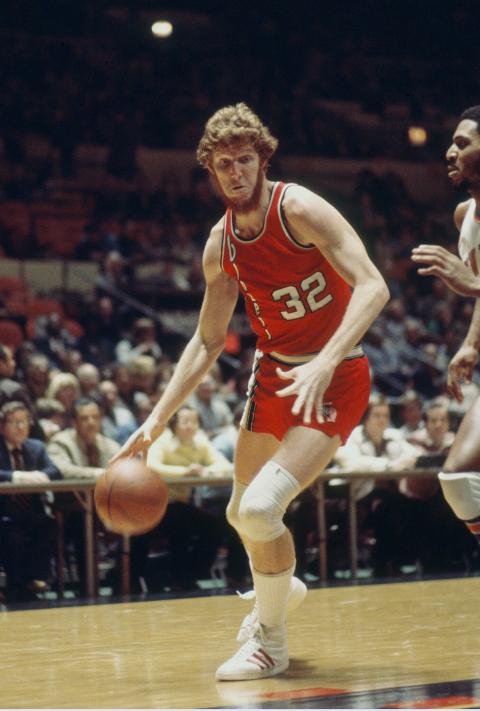
Bill Walton (Big Red):
Very few athletes have made a lasting impact both on and off the court like Bill Walton. With his towering presence, signature red hair, and glowing smile, Walton's influence on basketball and broader culture is undeniable. As a player, he achieved greatness with his skill and resilience, while off the court, he has continued to inspire through his philosophies, activism, and passion for the game and beyond.
The Portland Trail Blazers drafted the 6’11” UCLA star with the No. 1 overall pick in the 1974 NBA Draft. Expectations were high for Big Red coming into the league. Once he stepped foot on the court, Walton’s impact was undeniable. As a member of the Trail Blazers, he lived up to those expectations, leading the team to their first and only NBA championship in 1977. Walton’s NBA Finals performance earned him the coveted Finals MVP award. The following season, he carried that momentum over and was named the regular-season MVP, cementing his status as one of the best players in the game.
Despite his immense talent, Walton’s career was impaired by foot injuries, limiting his playing time and preventing him from reaching his full potential. However, even in the face of adversity, Walton never stopped playing his part. He found a second life with the Boston Celtics, where he came off the bench as the sixth man. His role with the Celtics helped the team win the 1986 NBA championship, and Walton was named the league’s Sixth Man of the Year.
When his playing days came to an end, Walton’s on-court legacy was solidified, and he transitioned to a career in broadcasting. His very colorful commentary on late-night PAC-12 basketball games made him an immediate fan favorite.
Beyond broadcasting, Walton was an outspoken advocate for several causes, including environmentalism, human rights, and the fight against chronic pain. Having dealt with severe injuries throughout his career, he became a voice for those suffering from physical ailments, sharing his story to raise awareness about the importance of proper care and treatment.
Despite facing setbacks and challenges, both physically and personally, Walton always maintained a positive outlook on life. Whenever he was asked how he was doing, he would always respond with, “I’m the luckiest guy in the world.” His enthusiasm was infectious whether he was calling a game, speaking at an event, attending one of his 869+ Grateful Dead concerts, or simply sharing his life experiences.
We honor Bill Walton as not only a phenomenal player but also a man who has touched lives far beyond the hardwood. His legacy is one of passion, perseverance, and the pursuit of happiness — both in basketball and in life. Walton was inducted into the Naismith Memorial Basketball Hall of Fame in 1993.
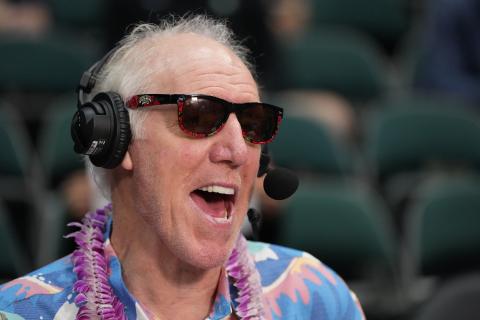
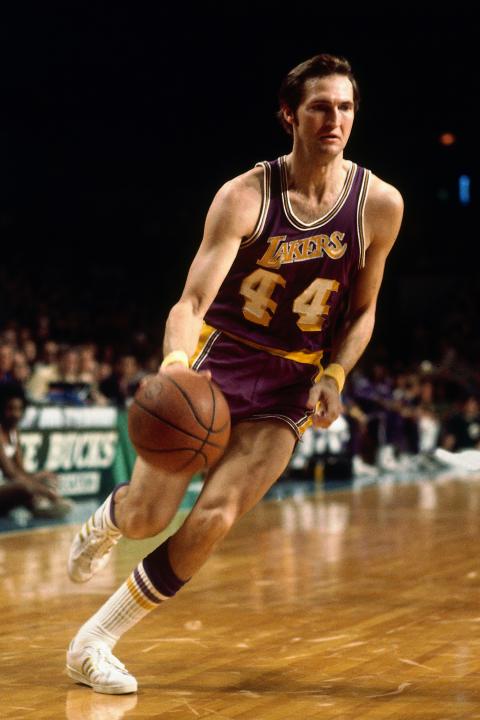
Jerry West (Mr. Clutch):
When you think of basketball, one of the first names that might come to mind is Jerry West. His legacy extends far deeper, as he’s cemented as one of the greatest players and minds in the history of the sport. His impact transcended the hardwood, influencing basketball for generations as a player, an executive, and the silhouette of the NBA logo.
West's versatility as a scorer was unmatched. Whether it was his trademark jump shot or his acrobatic finishes at the rim, West seemed to score at will. He averaged 27 points per game over his career, a mark that still ranks eighth in NBA history. He was a 14-time All-Star and 10-time All-NBA First Team selection, and in 1972, he finally captured the elusive NBA championship that he chased for so many years.
Yes, Jerry West might be one of the greatest players of all time; however, some might argue that he did his best work after he retired. West seamlessly transitioned into an NBA front-office role, where he excelled at scouting prospects and constructing a team.
As a head coach, scout, and then general manager of the Los Angeles Lakers, West played a pivotal role on the Showtime Lakers, one of the most dominant eras in NBA history. After coaching the team for three seasons, West became the Lakers’ GM and helped them win five championships in the 1980s. West was also responsible for signing Shaquille O'Neal and acquiring a high-schooler named Kobe Bryant in a draft-day trade in 1996. These moves laid the foundation for the Lakers’ three-peat from 2000 to 2002, solidifying West as one of the greatest architects in NBA history.
His influence didn’t stop with the Lakers. After leaving Los Angeles, West took on a consulting role with the Golden State Warriors. His presence helped shape a team that would go on to win multiple championships and revolutionize the way the game was played. West’s impact as an executive, much like his playing career, was defined by an unwavering commitment to winning and excellence.
As we remember Jerry West, we celebrate a man whose passion for the game elevated it to new heights. He was a champion on the court, a role model off the court, and one of the best basketball minds the game has ever seen. West was inducted into the Naismith Memorial Basketball Hall of Fame as a player in 1980 and as a member of the 1960 gold-medal-winning U.S. men’s basketball team in 2010, and he will be inducted for a record-setting third time as an executive in October 2024.
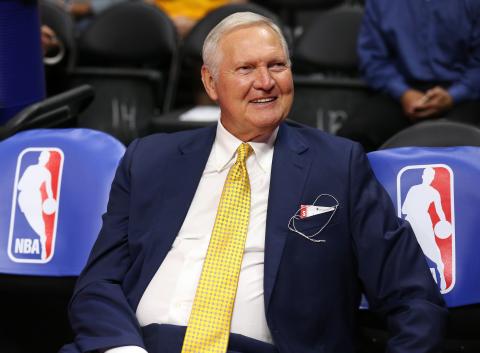
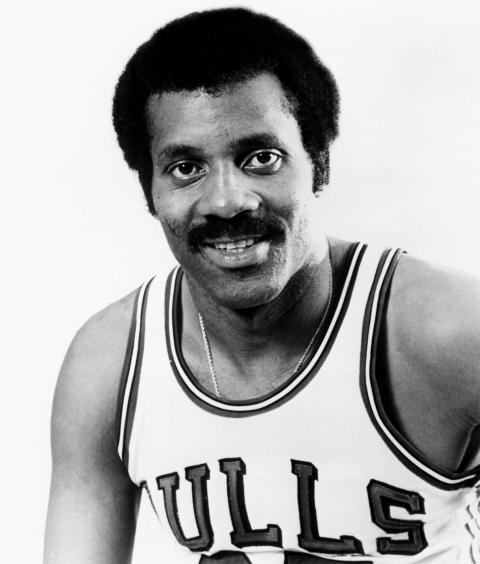
Chet “The Jet” Walker:
Chet “The Jet” Walker is maybe one of the most underappreciated yet pivotal figures to play in the NBA. Known for his smooth style of play, Walker was an extraordinary athlete who embodied both strength and finesse, paving the way for future generations of players.
Walker played with a smoothness and precision that defined his career as one of the most versatile forwards in the NBA during the 1960s and 1970s. Standing at 6'6", Walker was known for his lethal mid-range jumper, quick first step, and exceptional ability to get to the free-throw line. His blend of athleticism and basketball IQ made him a consistent scoring threat and a defensive force.
Drafted by the Syracuse Nationals (who later became the Philadelphia 76ers) in the 1962 NBA Draft, Walker immediately became an integral part of the team. He helped the 76ers win the NBA championship in 1967 while playing alongside legends like Wilt Chamberlain and Hal Greer. Walker’s ability to score in bunches while also providing defensive versatility made him a vital piece of that historic squad. After being traded to the Chicago Bulls in 1969, he averaged over 20 points per game for four straight seasons and added four All-Star selections to his resume.
Walker’s impact on the court was undeniable. However, his impact off the court was just as important. Walker was an outspoken advocate for civil rights and social justice during a time of great upheaval in the United States. He was one of many African-American athletes who used their platform to speak out against racial inequality, aligning himself with other pioneers of the time who believed in the power of athletes to drive societal change. In 1995, Walker wrote an autobiography, “Long Time Coming: A Black Athlete’s Coming-of-Age in America.” In it, he reflected on his experiences growing up in a segregated America, his rise to basketball stardom, and the challenges he faced along the way.
Chet Walker’s legacy is one of understated excellence. On the court, he was a master of his craft, playing with a combination of skill, intelligence, and grace that earned him a place among the greats. Off the court, he was a tireless advocate for justice and equality, using his platform to push for change long after his playing days were over. Walker’s impact, both as a player and as a human being, continues to be felt by those who knew him and those who study the game of basketball. He was a trailblazer in every sense, and his contributions, both seen and unseen, have left an indelible mark on the world. Walker was inducted into the Naismith Memorial Basketball Hall of Fame in 2012.
As the NBA continues to evolve, the influence of these three legends will remain a guiding force. They exemplified the best of basketball, both on and off the court, and their memories will live on in the hearts of fans and players around the league. The game of basketball is richer for having had Bill Walton, Jerry West, and Chet Walker as its ambassadors, and their impact will be felt for many generations to come.
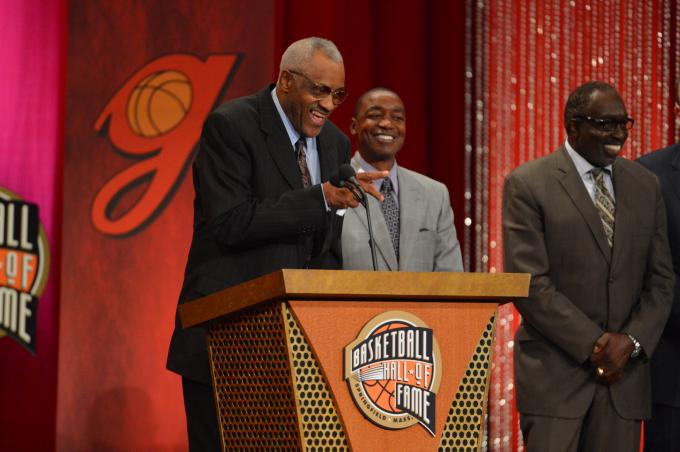
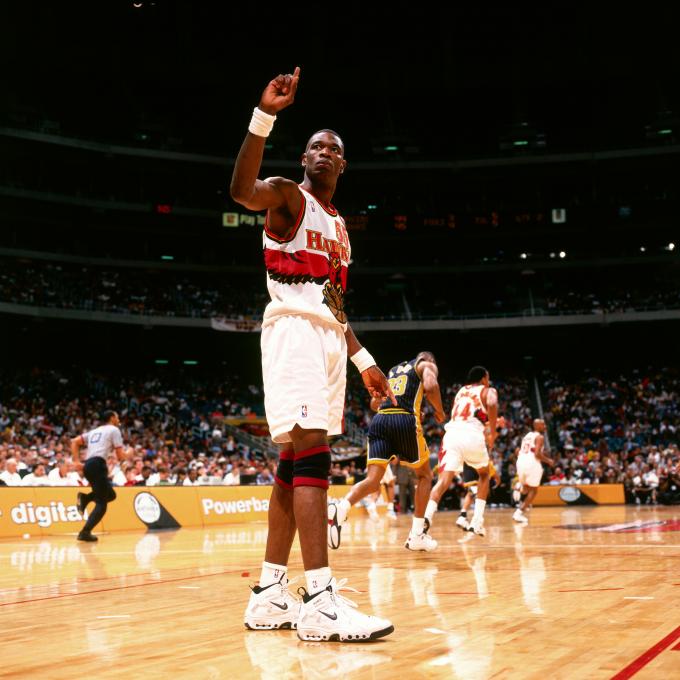
Dikembe Mutombo (Deke):
Dikembe Mutombo's legacy in basketball is etched in both his towering 7’2” frame and iconic finger wag, but his impact transcends far beyond the hardwood. One of the most dominant defensive forces in NBA history, Mutombo’s career was defined by his incredible shot-blocking ability, but his influence as a humanitarian and global ambassador has left an equally powerful mark on the world.
After being drafted No. 4 overall in the 1991 NBA Draft by the Denver Nuggets, Mutombo’s presence was felt immediately. It was clear that he was a game-changer when he was on the court, specifically on the defensive end. “Mount Mutombo” led the NBA in blocks for five seasons and earned the Defensive Player of the Year award four times throughout his career (1995, 1997, 1998, and 2001), which is tied for the most in league history. His signature phrase “Not in my House” along with the legendary finger wag became iconic throughout his life.
Throughout his career, Mutombo played for several teams, including the Atlanta Hawks, Philadelphia 76ers, and Houston Rockets, amassing eight All-Star appearances and solidifying his place as one of the greatest defenders in NBA history. His 3,289 blocks rank second in NBA history, behind only Hakeem Olajuwon. But while his basketball accolades are well-documented, it is what he did after stepping off the court that truly defined his legacy.
Beyond the stats and finger wags, Mutombo had another goal in mind: to give back to his home country of the Democratic Republic of the Congo and to improve the lives of people across the globe. Born in Kinshasa, Mutombo never forgot his roots, and from the very beginning of his NBA career, he worked to use his platform for the greater good. In 1997, Mutombo founded the Dikembe Mutombo Foundation with the goal of improving health, education, and quality of life for people in Congo. The Biamba Marie Mutombo Hospital, named after his mother, is one of the foundation’s biggest accomplishments. Opened in 2007 in Kinshasa, the hospital has provided care to hundreds of thousands of people, addressing critical health issues. Mutombo’s commitment to healthcare in Africa earned him widespread recognition and admiration, with the hospital standing as a beacon of hope in a region that had long struggled with inadequate medical facilities.
Mutombo’s philanthropic efforts didn’t stop in his home country. He became the NBA’s first global ambassador, traveling the world to promote peace, health initiatives, and education. Through his work with organizations like the United Nations and UNICEF, he brought attention to the challenges faced by underprivileged communities, especially in Africa. Whether advocating for polio eradication or serving as a role model for young athletes, Mutombo used his platform to inspire and uplift.
Mutombo will always be remembered as one of the greatest shot-blockers in NBA history. His true legacy, however, lies off the court. His deep voice, infectious smile, and countless humanitarian efforts throughout the world made him a global icon. Mutombo was inducted into the Naismith Hall of Fame in 2015.
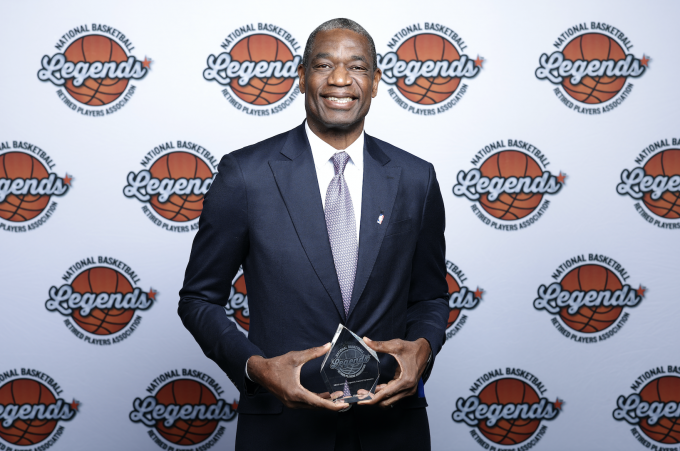
As the NBA continues to evolve, the influence of these four legends will remain a guiding force. They exemplified the best of basketball, both on and off the court, and their memories will live on in the hearts of fans and players around the league. The game of basketball is richer for having had Bill Walton, Jerry West, Chet Walker and Dikembe Mutombo as its ambassadors, and their impact will be felt for many generations to come.


